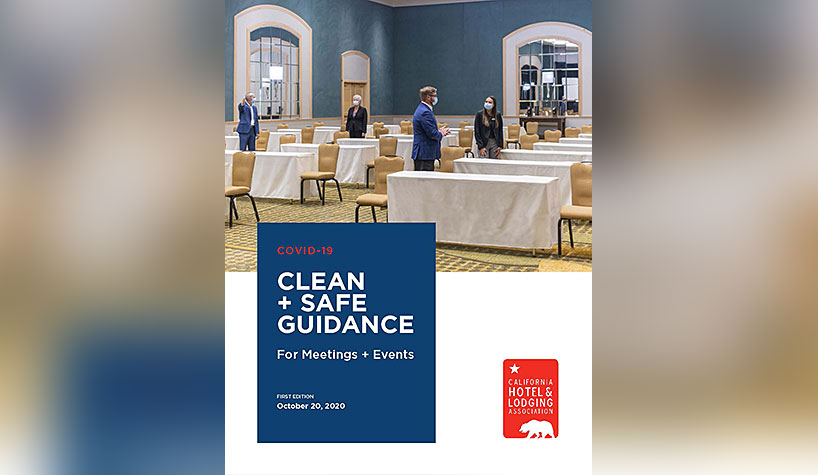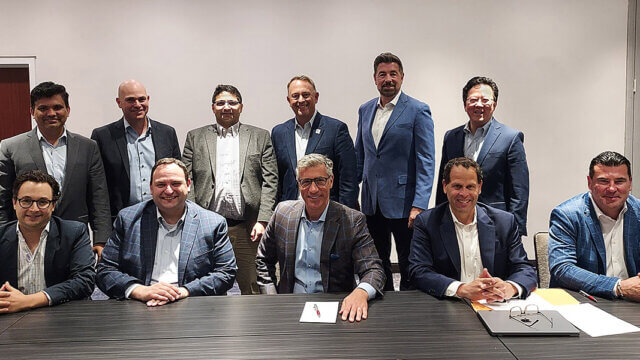SACRAMENTO—The California Hotel and Lodging Association has released its “Clean + Safe Guidance for Meetings and Events,” providing COVID-19 health safety protocols for California hotels as they prepare to reopen for individual meetings and events.
The protocols incorporate recommendations from the Centers for Disease Control and Prevention (CDC), the California Department of Public Health and Cal/OSHA, and are aligned with CHLA’s guidelines for individual travel that was issued in April.
“We put together these rules and guidance for the reopening of groups and meetings, and use them in conversations with our state and local government to hopefully affect a change,” said Bijal Patel, CHLA chairman in an exclusive interview with Hotel Business, who added, “I think it is also important to mention that 50% of our membership are independent, non-branded hotels, so we also provide advocacy and help to those who don’t have access to the brand guidelines.”

Patel stressed the importance of having one set of protocols for California. “When you speak with industry leaders or the government, you don’t want to plop down 12 different manuals—this is Hilton’s, this is Marriott’s, this is Hyatt’s. So it was important to have one set of guidelines for the whole state.”
The 11-page guidance focuses on planning ahead, enhanced communications and adaptability as hotels support customization of group customers, such as businesses, associations, religious events, charities and others. The standards include attendee arrival procedures, electronic registration, breaks for sanitation, increased use of presentation technology, use of multiple rooms for one meeting, same seating for attendees and non-contact, cashless transactions.
In a state as large as California, meetings and groups are big business, and the pandemic has taken its toll not only on the bottom line, but also the personnel that work the events.
“We have four major metropolitan areas: the Bay Area and San Francisco, Los Angeles, San Diego and Sacramento. They all rely on the meetings and events business,” said Patel. “We represent a wide range of properties—from small mom-and-pop properties all the way up to 2,000-room hotels—where the meetings business is especially crucial.”
He continued, “Right now, according to the way the laws on reopening hotels are written, they are only able to allow leisure and transient travel. So, it’s kind of limiting our markets to Friday, Saturday and Sunday business right now. We are seeing people take a little bit of a longer vacation with work from home and virtual learning but Monday through Friday, our industry needs help. Our hotels need help. We have thousands of employees in the group business sector that don’t have work. We have been able to reassign them but we can’t ignore the fact that through this pandemic, we’ve laid off close to 100,000 employees. A big part of bringing those people back online is bringing the meetings business back online.”
Patel noted that hotels aren’t the only businesses that are affected by the lack of group business. “I believe that the corporate travel business is so much more than just hotels,” he said. “You’ve got the Uber and taxi drivers. The rental car companies. The restaurants. There’s a whole economy surrounding meetings.”
While the guidance may be around for a while, Patel pointed out that the way health and safety protocols are perceived has been changed by the pandemic.
“This pandemic is not going away anytime soon, and I think we’re going to have to see these protocols for the foreseeable future,” he said. “What’s important for everyone to realize is that we in the industry have been masters of cleanliness, health and safety protocols. What has changed during the pandemic is that, pre-pandemic, we were much more discreet about everything; during the pandemic, we are being open about the protocols.”


